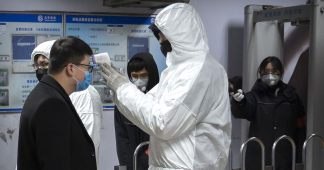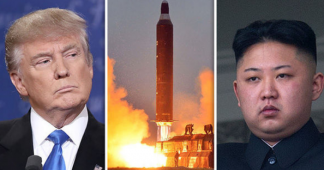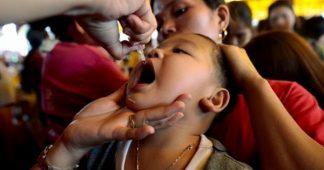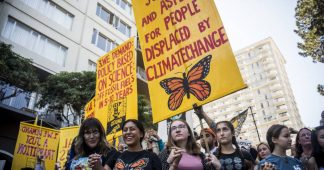February 28, 2020
Across the U.S., officials report a severe shortage of test kits for coronavirus. New York officials say they’re preparing their own kits, after kits distributed by the Centers for Disease Control failed validation tests. Meanwhile, new cases of coronavirus continue to spring up worldwide, with Nigeria reporting its first case and one of Iran’s vice presidents testing positive. We discuss how MSF USA, or Doctors Without Borders USA, is responding to coronavirus, with the organization’s executive director, Avril Benoît.
Transcript
AVRIL BENOÎT: We work in 70 countries — operations, medical operations, projects. Those are the ones that we’re focused on right now, to get them ready. We have the case in Nigeria. You can imagine, there are many more cases. The testing capacity in the U.S., let alone in a low-income country or a fragile state, is extremely limiting. So we don’t know where coronavirus really is. And that’s one of the things that’s really concerning us, because we know that those countries, their health systems are already fragile, already underresourced. And so, what we’re trying to do is reinforce their capacity.
We do have a team that’s doing public health information, infection control education, working out of Hong Kong, focusing also on those marginalized, vulnerable minority groups. There are little areas that you will always find who are forgotten in these outbreaks, where they’re not part of the dominant group. The messages go out in the main language of the country, and they forget about everyone else who speaks other languages. So that’s our focus. The prevention is going to be big.
We also have a lot of concerns, though, about the development of these testing kits. We need cheap, available, quick — you know, these rapid diagnostic kits to be available in the places where we work, because you can imagine if coronavirus starts to infiltrate maybe one of these refugee camps or an area with a lot of internally displaced people living in crowded conditions in a stadium or in a school. We work in those kind of places providing healthcare.
We’re looking for the vaccination also. This vaccination, this vaccine should be affordable. There’s a lot of public money going into this effort. A lot of global health experts are contributing to this effort. The profit motive of the R&D in the big pharmaceutical sector has to take into consideration that this is public money going into the development of a vaccine for coronavirus. And we would like to see the price be affordable, so that those low-income countries, those countries at war, countries that don’t have the means can afford to get access to it.
Published at https://www.democracynow.org/











